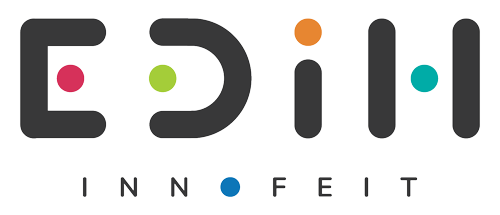Dive into the world of deep learning! Learn to design, train, and optimize neural networks with Python and Keras. Gain practical skills to solve real-world problems and unlock the potential of deep learning to transform your organization.
Course Overview Table
| Chapter | Details |
| Partner | Faculty of Electrical Engineering and Information Technologies |
| Title | Deep Learning |
| Service | Course |
| Target Group | Engineers and IT professionals from SMEs, industry, and public organizations, as well as individuals looking to develop their deep learning skills |
| Format | In-Person Training |
| Focused on Key Technologies | Artificial Intelligence, Deep Learning |
| Status | Ready to offer |
| Stakeholders from SME/PA Side | Organizations seeking to leverage deep learning to optimize processes, enhance decision-making, and drive innovation through the development and deployment of deep learning models. |
| Requirements for Participation | Knowledge of data preprocessing and preparation for machine learning, basic understanding of machine learning, basic knowledge of Python programming. |
| Estimated Duration | 4 days, 4 hours per day (16 hours in total) |
Description of the Course
Deep learning stands as a cornerstone of modern artificial intelligence (AI), transforming the way complex problems are solved across different sectors. By leveraging vast amounts of data, deep learning enables the development of AI-driven solutions that enhance decision-making, automate processes, and drive innovation. As the field advances, a solid understanding of its principles and practical applications is increasingly essential for organizations looking to integrate AI into their operations.
This course offers a structured and comprehensive exploration of deep learning, progressing from core concepts to advanced techniques. With a balanced approach that integrates theoretical foundations and hands-on implementation, the course equips participants with the skills needed to design, train, and evaluate deep learning models using Python and Keras. Through practical exercises and real-world datasets, participants will gain a deeper understanding of neural network architectures and their application to real-world problems.
Delivered over four days, the course covers the following topics:
- Introduction to Deep Learning and Neural Networks
The first session introduces the foundational principles of deep learning, including neural network architecture, activation functions, and the mechanisms of forward and backward propagation. Participants will gain practical experience by training a shallow neural network, laying the groundwork for more complex models.
- Deep Neural Networks
This session focuses on the training process, covering loss functions, gradient descent, and optimization strategies. Participants will explore methods to improve model performance and generalization, including dropout, batch normalization, and L2 regularization. Practical exercises will involve designing and training deep neural networks using Keras.
- Convolutional Neural Networks (CNNs)
This session examines the structure and function of convolutional neural networks, emphasizing their role in extracting hierarchical features from complex data. Participants will implement CNNs using real datasets and explore how convolutional and pooling layers contribute to effective feature learning
- Transfer Learning
The final session introduces transfer learning techniques, highlighting their practical value in accelerating model development. Participants will work with pre-trained models, learning how to adapt and fine-tune them for new tasks and domains using limited data.
By the end of the course, participants will have developed a solid understanding of deep learning, reinforced by practical experience in model design, training, and evaluation. These capabilities will enable them to effectively apply deep learning methods to a variety of real-world challenges and support data-driven innovation within their organizations.
Additional Course Information
| Category | Details |
| Developed skills | Participants will acquire knowledge and skills, including: |
| Skill 1: Understanding neural network architecture and propagation mechanisms.
Skill 2: Building and optimizing deep neural networks with Keras. Skill 3: Applying techniques like dropout, batch normalization, and regularization for better model generalization. Skill 4: Designing and applying convolutional neural networks Skill 5: Adapting and fine-tuning pre-trained models for new tasks. |
|
| Learning Methods Used | Lectures, hands-on exercises, group discussions |
| References/Resources | Francois Chollet – Deep Learning with Python (2017)
Ian Goodfellow, Yoshua Bengio, Aaron Courville – Deep Learning (2016) |
| Overview Slides | Supporting materials will be provided; available via the course platform or upon request |
